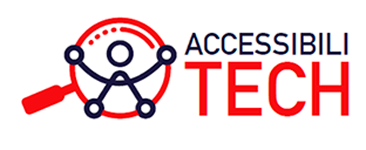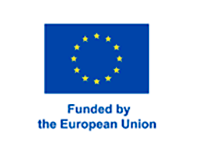@yohocewill
Perfil
Registrado: hace 9 meses, 2 semanas
Building a Strong Nursing Career with Capella FlexPath and Assessment Excellence Capella FlexPath assessments provide students with a flexible, personalized learning experience that adapts to their unique schedules and learning needs. The FlexPath model eliminates the constraints of traditional classroom structures by allowing students to advance through coursework at their own pace. By focusing on competency-based learning, students demonstrate their mastery of a subject through practical assignments and projects, rather than simply taking exams. This structure is particularly advantageous for working professionals, as they can control their study time while still progressing toward their degree. FlexPath assessments are designed to help students deepen their understanding of course material through real-world applications. As students demonstrate their ability to apply the concepts they learn, they are able to move forward, building confidence in their knowledge before advancing. For nursing students, this model provides a streamlined path for progressing through foundational courses while allocating more time to complex, clinical-based learning. FlexPath allows students to focus on areas where they need further improvement, ensuring they are well-prepared for real-world challenges once they enter the workforce. Another notable benefit of the FlexPath approach is the emphasis on flexibility and self-directed learning. Unlike traditional models, where students follow a fixed schedule, FlexPath allows individuals to study at times that are convenient for them. This autonomy is especially useful for nursing students, who often balance coursework with clinical hours and personal commitments. The ability to set their own pace and schedule helps them manage their time more effectively, ensuring that their education complements their professional and personal responsibilities. Moreover, capella flexpath assessments are designed to foster a sense of independence and discipline. As students take control of their learning journey, they also learn valuable time management and organizational skills. This self-reliance prepares students for the high level of responsibility they will face in their careers. For nurses, being able to manage time effectively and prioritize tasks is critical, as they must often make decisions quickly and work in fast-paced, high-pressure environments. The self-directed nature of FlexPath provides students with the necessary skills to excel in both their academic and professional lives. MSN Writing Services are a vital resource for students pursuing advanced degrees in nursing. Graduate-level assignments require critical thinking, in-depth analysis, and a clear presentation of ideas. For nursing students, writing well-researched and well-structured papers is an essential skill that demonstrates their ability to engage with complex healthcare topics. MSN Writing Services offer expert support in refining writing techniques, ensuring that students’ work is organized and professionally presented, meeting the high standards expected at the graduate level. One of the primary advantages of MSN Writing Services is the guidance provided in organizing thoughts and structuring papers. Graduate writing assignments often involve synthesizing a large amount of research and presenting it in a logical, cohesive manner. MSN Writing Services help students build strong outlines, identify key points, and organize their research in a way that makes their arguments clear and compelling. This structure ensures that their papers communicate their ideas effectively and meet the academic expectations of their professors. In addition to structural support, MSN Writing Services also offer expertise in citation and referencing. Proper citation is essential in academic writing, particularly in nursing, where students must incorporate evidence-based research to support their claims. The writing services ensure that students use correct citation formats, such as APA, to maintain academic integrity. This attention to detail not only helps students avoid plagiarism but also ensures that their work meets the professional standards required in nursing education. Another key benefit of MSN Writing Services is the opportunity for personalized feedback. Whether a student is struggling with clarity, grammar, or argumentation, writing services offer tailored advice to improve their work. This individualized approach helps students strengthen their writing skills and learn how to apply feedback constructively. As nursing students work through assignments and clinical reports, this support helps them refine their ability to communicate complex ideas effectively, which is crucial for their future careers in healthcare. NURS FPX 4065 Assessment 4 is a key component of nursing education that emphasizes the ethical decision-making process. In healthcare, nurses regularly face moral dilemmas where they must choose between conflicting priorities, such as patient autonomy and the need for medical intervention. This assessment challenges students to engage with ethical frameworks and apply them to real-world situations. By analyzing case studies, students gain a deeper understanding of how ethical theories can guide their decision-making and improve patient care. The assessment focuses on helping students explore a variety of ethical theories, including consequentialism, deontology, and virtue ethics. These frameworks offer different perspectives on what constitutes the right decision in a given situation. By learning to apply these theories, students are better prepared to navigate complex ethical issues in their professional practice. They will be able to make informed, thoughtful decisions that prioritize the well-being of patients while respecting their rights and dignity. NURS FPX 4065 Assessment 4 also underscores the importance of communication in ethical decision-making. Nurses must be able to explain their decisions to patients, families, and other healthcare professionals in a clear and empathetic manner. The assessment helps students develop these communication skills, ensuring that their ethical choices are understood and respected by all parties involved. Effective communication is vital in fostering trust and collaboration within healthcare teams, and this assessment ensures that students can articulate their decisions with confidence. Furthermore, cultural competence is an integral part of ethical decision-making. Nurses often work with patients from diverse cultural backgrounds, and they must be sensitive to cultural differences when making decisions. This nurs fpx 4065 assessment 4 encourages students to consider the cultural factors that may influence ethical decisions, ensuring that their practice is inclusive and respectful. By developing cultural competence, students are better prepared to provide high-quality, patient-centered care in a diverse healthcare environment. NURS FPX 4905 Assessment 2 focuses on evidence-based practice (EBP), a crucial component of modern nursing. Evidence-based practice involves integrating the best available research with clinical expertise to make informed decisions that improve patient outcomes. In this assessment, students are tasked with identifying a clinical problem, reviewing relevant research, and proposing evidence-based solutions. This process helps students develop critical thinking skills and ensures that their clinical practice is grounded in the latest evidence. The assessment begins with the identification of a specific clinical issue, such as reducing the incidence of hospital-acquired infections or improving patient satisfaction. Students then conduct a comprehensive review of the literature to find studies that provide insights into effective interventions. They must assess the quality of the research, considering factors such as study design and statistical significance. By doing so, students ensure that their proposed solutions are based on reliable and valid evidence. Once students have reviewed the research, they develop evidence-based interventions to address the identified problem. These interventions are designed to be practical and applicable in clinical settings. By proposing solutions grounded in evidence, students are prepared to improve patient care and outcomes. This approach to learning helps students build the skills they will need to implement EBP in their own nursing practice, ensuring that their decisions are informed by the best available research. Finally, nurs fpx 4905 assessment 2 emphasizes the importance of evaluating the outcomes of evidence-based interventions. Students are tasked with measuring the effectiveness of their proposed solutions by assessing clinical outcomes, patient feedback, and cost-effectiveness. This evaluation process allows students to refine their interventions and ensure that they are achieving the desired results. By learning to assess the impact of their decisions, students develop the skills necessary to continuously improve patient care and enhance the quality of healthcare delivery. NURS FPX 4045 Assessment 2 addresses the critical issue of patient safety in nursing practice. Ensuring that patients receive safe, effective care is one of the most important responsibilities of nurses. This assessment challenges students to identify potential safety risks in healthcare settings and develop strategies to mitigate these risks. By analyzing real-world scenarios, students learn how to prevent errors and enhance patient safety through effective interventions. The assessment covers a range of safety concerns, including medication errors, falls, and infection control. Students must evaluate the causes of these risks and propose strategies to reduce the likelihood of harm. This includes reviewing existing protocols, recommending improvements, and exploring new technologies that can help prevent errors. By developing these solutions, students gain practical skills that they can apply in their future nursing practice to create safer environments for patients. In addition to identifying risks, students are tasked with implementing strategies to improve patient safety. These interventions may involve changes in clinical procedures, additional staff training, or the introduction of safety monitoring systems. By designing and proposing these solutions, students develop problem-solving skills that will be valuable throughout their careers. The ability to identify and address safety concerns is essential for nurses, as patient well-being depends on their ability to manage risks effectively. Lastly, nurs fpx 4045 assessment 2 emphasizes the need for continuous improvement in patient safety. Students are encouraged to evaluate the outcomes of their interventions by tracking key safety indicators such as incident reports and patient harm rates. This ongoing evaluation process ensures that safety improvements are sustained and that any new risks are identified and addressed promptly. By learning to assess the impact of their interventions, students are better equipped to contribute to a culture of safety in healthcare.
Foros
Debates iniciados: 0
Respuestas creadas: 0
Perfil del foro: Participante

